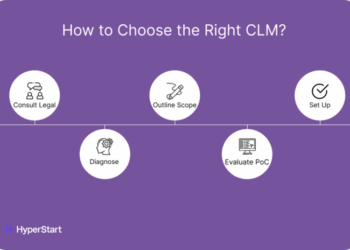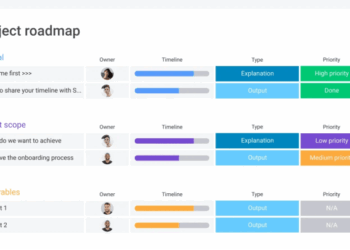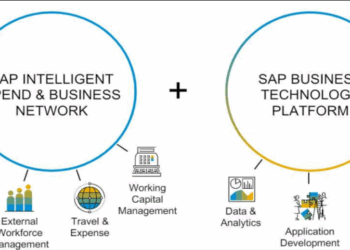Diving into the world of Emerging Market Trends Through Digital Platforms, we uncover how these digital avenues are reshaping industries and businesses alike. Let's delve into the impact and significance of this dynamic trend.
Overview of Emerging Market Trends Through Digital Platforms

Digital platforms play a crucial role in shaping emerging market trends by providing innovative solutions and disrupting traditional industries. These platforms enable businesses to reach a wider audience, gather valuable data, and enhance customer engagement.Key examples of how digital platforms are revolutionizing various industries include e-commerce platforms like Amazon and Alibaba transforming retail, streaming services like Netflix and Spotify revolutionizing the entertainment industry, and ride-sharing apps like Uber and Lyft disrupting the transportation sector.The impact of emerging market trends on businesses adapting to digital platforms is profound.
Companies that embrace digital transformation are able to streamline processes, improve efficiency, and stay competitive in a rapidly evolving market landscape. Those who fail to adapt risk being left behind as consumer preferences shift towards digital solutions.
E-commerce Trends
The rise of digital platforms has significantly influenced the e-commerce landscape, leading to the emergence of several key trends that are shaping the industry. Traditional retail methods are being challenged by these innovative e-commerce trends, which provide businesses with new opportunities to reach consumers and drive growth.
Let's explore some of the latest e-commerce trends driven by digital platforms and how they are transforming the retail sector.
Personalized Shopping Experience
One of the prominent trends in e-commerce is the focus on providing personalized shopping experiences to customers. Through data analytics and AI technologies, companies can analyze customer preferences and behavior to offer tailored product recommendations, discounts, and promotions. This personalized approach not only enhances customer satisfaction but also increases conversion rates and customer loyalty.
Omnichannel Retailing
Another significant trend is the adoption of omnichannel retailing, where businesses integrate multiple channels such as websites, mobile apps, social media, and physical stores to provide a seamless shopping experience. Customers can browse products online, place orders through mobile apps, and choose to pick up items from a nearby store.
This convergence of online and offline channels enables retailers to reach a wider audience and cater to diverse customer needs.
Mobile Commerce
With the increasing use of smartphones, mobile commerce has become a dominant trend in e-commerce. Companies are optimizing their websites and apps for mobile devices to facilitate convenient and frictionless shopping experiences on-the-go. Mobile payments, QR code scanning, and mobile wallets are some of the innovations driving the growth of mobile commerce, enabling customers to make purchases anytime, anywhere.
Sustainable and Ethical Practices
Consumers are becoming more conscious about sustainability and ethical practices, leading to a rise in e-commerce trends focused on environmental responsibility and social impact. Companies are incorporating eco-friendly packaging, ethical sourcing, and charitable initiatives into their business models to attract environmentally conscious consumers.
By aligning with sustainable values, businesses can differentiate themselves in the competitive e-commerce market and build a loyal customer base.
Examples of Successful Companies
Several companies have successfully leveraged digital platforms for e-commerce growth, demonstrating the effectiveness of these trends in driving business success. For instance, Amazon's personalized recommendation engine has significantly increased sales by tailoring product suggestions to individual customer preferences. Similarly, Nike's omnichannel strategy allows customers to seamlessly transition between online and offline shopping channels, enhancing their overall shopping experience.
Social Media Influencer Marketing
In today's digital age, social media platforms have become powerful tools for influencing market trends through influencer marketing. With the rise of social media influencers, brands are leveraging their reach and credibility to connect with consumers in a more authentic and engaging way.
Role of Influencers in Shaping Consumer Behavior
- Social media influencers play a crucial role in shaping consumer behavior by promoting products or services to their followers.
- Consumers often trust influencers' recommendations as they perceive them as relatable and authentic sources of information.
- Influencers have the ability to create buzz around a brand or product, driving consumer interest and influencing purchasing decisions.
Effectiveness of Influencer Marketing in Emerging Markets
- In emerging markets, influencer marketing has proven to be highly effective in reaching target audiences that are active on social media platforms.
- Local influencers in emerging markets have a deep understanding of their audience's preferences and cultural nuances, making their recommendations more impactful.
- Brands that collaborate with influencers in emerging markets often see increased brand awareness, engagement, and ultimately, sales.
Data Analytics and Personalization

Data analytics on digital platforms play a crucial role in driving personalized marketing strategies. By analyzing customer behavior, preferences, and interactions with the brand online, companies can tailor their marketing efforts to target specific audiences more effectively.
Importance of Data-Driven Decision-Making
- Data-driven decision-making allows companies to adapt to market trends in real-time. By analyzing data from various sources, businesses can identify patterns and insights that help them make informed decisions about their marketing strategies.
- Personalized marketing based on data analytics leads to better customer engagement and loyalty. When customers receive tailored content and offers that match their interests, they are more likely to respond positively and make repeat purchases.
Examples of Companies Utilizing Data Analytics
- Amazon is a prime example of a company that leverages data analytics to personalize the customer experience. By analyzing customer browsing history, purchase behavior, and preferences, Amazon recommends products that are likely to appeal to individual customers.
- Netflix uses data analytics to personalize content recommendations for its users. By tracking viewing habits and ratings, Netflix suggests movies and TV shows that align with each user's preferences, increasing user satisfaction and retention.
Final Thoughts

In conclusion, Emerging Market Trends Through Digital Platforms offer a glimpse into the future of business evolution. With data-driven strategies, personalized experiences, and influencer marketing on the rise, the landscape is set for continuous transformation.
Essential Questionnaire
How are digital platforms influencing emerging market trends?
Digital platforms play a significant role in shaping emerging market trends by providing a channel for businesses to connect with consumers globally.
What are some examples of successful companies leveraging digital platforms for e-commerce growth?
Companies like Amazon, Alibaba, and Shopify have successfully utilized digital platforms to expand their e-commerce presence and reach a wider customer base.
Why is data analytics important for personalized marketing strategies?
Data analytics help businesses understand consumer behavior and preferences, allowing them to tailor personalized marketing strategies that resonate with their target audience.










